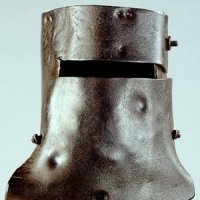Annealing Copper Washers And Gaskets.
Announcements
-
Similar Content
-
Latest Posts
-
I went from stupid 600+HP setup, to an NA Barra in mine...
-
You have the option to do this. Nobody but me ever did this (go slower, I mean) Everyone seems to fall victim to "This would be a great setup for you, but for me, I need a little more power..."
-
By joshuaho96 · Posted
Save yourself the headache of an alarm. Immobilizer on the signal side of the main EFI relays so it won't start is good enough. DIY killswitch is the same thing except instead of a nice passive system you need to remember to switch it on and off. -
Yeah, the advent of canbus was supposed to cut down on wiring weight, then some bright marketing wonk says "oh, look at all these wonderful tech gadgets we can cram in here now that we have this wonderous technology" and some arsehole safety legislator says "oh, look at all the wonderful surveillance and tracking gadgets we can cram in here now that we have this wonderous technology" and some dipshit young engineer who has grown up thinking that an extra 500000 lines of code is not a problem because storage is cheap these days says "oh look at all this wonderful shit I can do to one up those dipshit arsholes over at VW" and the Karens of the world all go "oh look at all these fancy things I can do on my screen (so long as I am not driving on a bumpy road wherein touch screens immediately become the single most stupid shit idea ever shoveled into a car) and my 19 zone airconditioning keeps my sweaty fat folds a bit less damp and the windows close themselves because I'm too fat and lazy to wind them up for myself and these reversing sensors would have been great if I'd paid attention to them instead of smashing them on the bollard while I was reversing and staring fixedly forward that day I went to pick up little Charlize from ballet" and the sweaty mongoloids who say "oh this wonderful collision avoidance technology with these 45 excellent radar antennae scattered across the front of my car mean I can tailgate like a methed up tradie at full speed with no fear because the car and the 35 airbags will protect me if it all goes wrong" ...... </shallistopranting?>
-







Recommended Posts
Create an account or sign in to comment
You need to be a member in order to leave a comment
Create an account
Sign up for a new account in our community. It's easy!
Register a new accountSign in
Already have an account? Sign in here.
Sign In Now